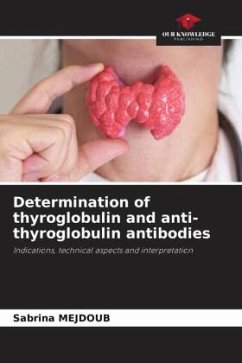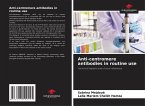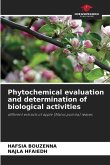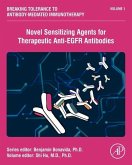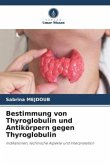Monitoring of patients treated for differentiated thyroid cancer (DTC) includes serum thyroglobulin (TG) and anti-TG antibodies (Ac). The aim of our study was to describe the methodology and interpret the results of these two parameters.TG and anti-TG Ac assays were performed by electro-chimiluminescence and ELISA, respectively.Thirty-five patients were included. TG was undetectable in 18 cases and detectable in 17 (0.12 to 51.32 ng/ml). The TG result was not interpretable in 2 cases due to the positivity of anti-TG Ac (>100 IU/ml). In the absence of anti-TG Ac (33 cases), the TG result was interpreted according to whether the assay was performed during TSH braking (15 cases) or after TSH stimulation (18 cases), and was in favor of an excellent response in 24 cases, an intermediate response in 2 cases, and an inadequate response in 7 cases. TG assay is useful for monitoring CDT. Anti-TG autoantibodies are recommended, as they interfere with the TG assay. The results of these analyses must be compared with clinical and imaging data to adapt management.
Bitte wählen Sie Ihr Anliegen aus.
Rechnungen
Retourenschein anfordern
Bestellstatus
Storno

